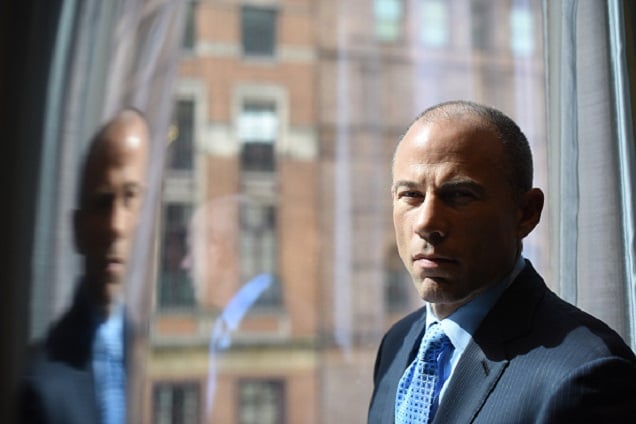There’s An Epidemic Of ‘What Were They Thinking?’
And HHS is not even involved. The post There’s An Epidemic Of ‘What Were They Thinking?’ appeared first on Above the Law.

After the hideous events of September 11, 2001, we spoke of a “new normal” for Americans. Are we now in a new “new normal”? Have we normalized authoritarianism, given all that has gone on over the past week or so? Ever since January 20? What does that mean? While we’re thankfully not totally in authoritarian grips, at least not yet, there have been disturbing signs of that normalization, especially here in the past week in Los Angeles.
And no, Los Angeles has not been on fire, except for those two destructive fires that swept through part of Los Angeles city and county in January. And no, except for the approximately one square mile curfew in downtown LA (since lifted), life in La-La Land goes on without any hiccups. Jimmy Kimmel quipped last week that Los Angeles has more destruction and trouble after any of our sports teams wins a championship. And yes, the National Guard is still here and, yes, ditto 700 or so Marines. Sorry 47, but L.A.’s death has been greatly exaggerated once again.
So let’s focus on the mundane, the ridiculous, and of course, the “what were they thinking,” that grips our profession nonstop. Doing that shows that the world still turns in some fashion.
Let’s start with former San Bernardino County District Attorney Michael Ramos, who lost his re-election bid in 2018. He has stipulated to a six-month suspension of his law license. For what? For deleting text messages and emails in the context of criminal charges that his office brought and could not prove beyond a reasonable doubt. If you are like me, you hate doing litigation holds and collecting emails and texts and producing them when demanded, especially when there could be one or more “smoking guns” that do not help your case and may tank it altogether. However, the duty of preservation is paramount. Every lawyer is required to know the rules. Am I right or am I right?
Ramos claimed he was ignorant of record keeping laws. Wait! What? He was the DA for 16 years and didn’t know about record keeping laws? Really? He’s been in practice for more than 30 years. What about the requirement that the government turn over all evidence it has to the defense? What about the requirement that the turnover must include all kinds of evidence?
Ramos’s stipulation has yet to be approved by the California Supreme Court. I wonder if the court will approve it, given that he was the district attorney for 16 years with an office of more than 200 deputy DAs. He was also a public official, as well as an attorney. The California State Bar determined that Ramos’ excuse lacked credibility. No surprise there.
Switching now to the appellate court, just because you’ve retired as an appellate justice doesn’t necessarily mean that you get a hall pass. California’s Commission on Judicial Performance now has its sights on retired appellate justice William J. Murray, Jr. He retired from the Third Appellate District bench in Sacramento. In its 20-page complaint and with another 20 pages of exhibits, CJP alleges that the now retired justice Murray engaged in willful misconduct in office, “persistent failure or inability to perform his duties, conduct prejudicial to the administration of justice that brings the judicial office into disrepute, improper action, and dereliction of duty within the meaning of article VI, section 18 of the California Constitution, providing for removal, censure, or public or private admonishment of a judge or former judge.” Clearly, former judges are not exempt.
Among the charges alleged is that Murray delayed issuing a significant number of decisions from 2012 to 2022. California law requires that an appellate decision be issued within 90 days of submission to the court. In failing to comply with that requirement the former justice allegedly violated various canons of judicial ethics.
And last, but not least, the Wall Street Journal reported last week that the State Bar of California has opened an investigation into Gloria Allred’s firm amid claims from dissatisfied clients who alleged that they were pressured into settling. Sounds like these claims may be what every litigator who has ever settled a case calls “settlor’s remorse.”
Over the years, I had a number of cases with Allred’s partners. We resolved every case at mediation. Both sides were unsatisfied but litigation was over. My client paid more than it wanted (kicking and screaming all the way with an occasional tantrum) and I imagine that the firm’s clients received less than they thought they deserved. So what else is new? While I know nothing about any other issue mentioned in the Journal’s reporting, I do know that a good resolution means both parties are pissed and unhappy. That’s as it should be.
Jill Switzer has been an active member of the State Bar of California for over 40 years. She remembers practicing law in a kinder, gentler time. She’s had a diverse legal career, including stints as a deputy district attorney, a solo practice, and several senior in-house gigs. She now mediates full-time, which gives her the opportunity to see dinosaurs, millennials, and those in-between interact — it’s not always civil. You can reach her by email at oldladylawyer@gmail.com.
The post There’s An Epidemic Of ‘What Were They Thinking?’ appeared first on Above the Law.
















































































































































